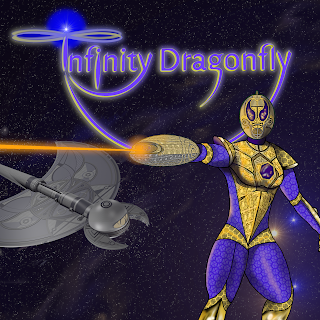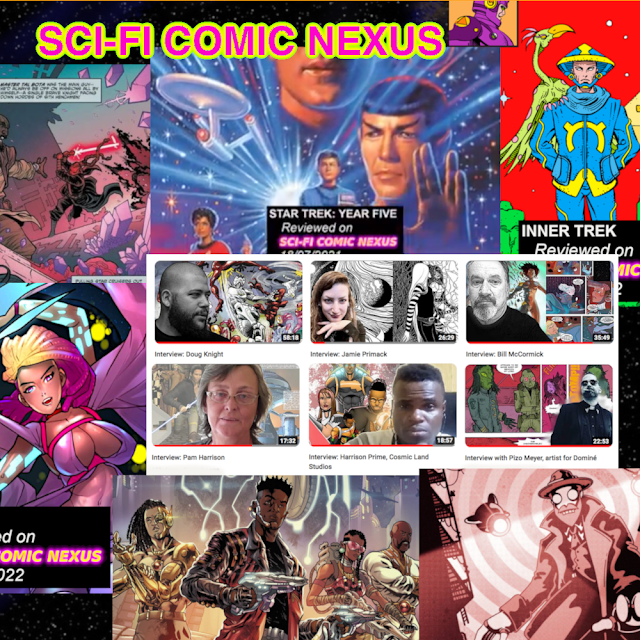Review: Not All Robots
Florida, 2056: The Earth is an uninhabitable wasteland thanks to humanity’s disastrously poor judgement. Survivors live in pressurised dome cities, internal climate controlled by robots. Actually, everything is controlled by robots. Thanks to advances in artificial intelligence and increased automation, all services once performed by humans are now handled – much more efficiently – by robots. Government, judiciary, police: all automated.
Where does this leave humans? As little more than pets. Some time ago it was decided – by a committee of computers – that humans required supervision, and so each household was provided with a live-in automaton to take care of them. These robots go out to work and are the sole earners; the human families – liberated from the drudgery of having any kind of occupation – spend their days in perpetual leisure.
Sounds like paradise? Not exactly. Many people are unhappy with having machines in control of their lives, left with no meaningful activities and, in some cases, afraid of the robots living among them. Whilst eminently superior to humans in many ways, the robots are not perfect; every now and then one of them will “glitch” – slaughtering their flesh-and-blood companions.
As you may have surmised, Not All Robots by writer Mark Russel and artist Mike Deodato Jr is a dark comedy. Many of the robots have names that make them sound like killing machines (Razorball, Slice-a-tron, etc.) and regard their organic counterparts as inferior, irresponsible and annoying. They wonder: Why do the humans complain so much? They are like ungrateful, spoiled children...
The premise here is one found in the novelette With Folded Hands by Jack Williamson in 1947. In that story “mechanicals” – programmed to care for human beings and protect them from all possible harm – had taken their Prime Directive to the ultimate extreme, taking over every aspect of life and forcing all humans to live without having to perform any type of work. Forbidden from lifting a finger, all they can do is sit with folded hands, a vision of a strangely paradoxical hell.
The theme of robot superiority is a recurring one in science fiction; often more than justified by humanity’s shortcomings in the real world: war, crime, ecological destruction, etc. There is a cold logic to the notion that we would be better off with machines in control, beings incapable of the petty insecurities, prejudices and incompetencies that plague our species. The idea was revisited in the 2004 film adaptation of Isaac Asimov’s I, Robot, in which the author’s famous Three Laws of Robotics are interpreted by a controlling AI to require total domination of humanity in order to restrain our inherently self-destructive instincts. As the original Terminator said to Sarah Connor: “It is in your nature to destroy yourselves.”
Not All Robots takes a slightly different spin on this trope. Here the machines are not coldly logical and calculating, they have fully developed personalities with all the same psychological weaknesses as any of us. They are just as neurotic, sarcastic, petty and obnoxious as any regular guy. Just as there are disaffected humans secretly working against the status quo, so there are robots who have had enough of tolerating the irritating organics and are tempted to disable their 'empathy chips' to free themselves from any restraint.
When a mechanical brain accidentally - or, perhaps not accidentally - pumps an elevated level of nitrous oxide into the Orlando bubble, killing all 200,000 people in the city - and is then exonerated by a computerised judge within 0.326 seconds - it seems that tensions cannot remain below the surface much longer.
Deodato's art is grainy but sharp, effortlessly blending the naturalism of the human characters and their very humanoid mechanical guardians with more abstract elements. The robots, all faceless nuts'n'bolts Chappie-type mechanoids, convey their feelings through postures and gestures just as much as the actual people... if not more so.
As dystopias go, this is a very odd one, raising more chuckles than most, but still that dark edge is there. If an all-out war between man and machine breaks out, does vulnerable flesh stand a chance?
NOT ALL ROBOTS ON AWA STUDIOS
Zak Webber
Twitter - @sfcomicartist / Instagram - @sfcomicartist
JOIN US ON FACEBOOK! - SCI-FI COMIC NEXUS
*****
***
*




Comments
Post a Comment